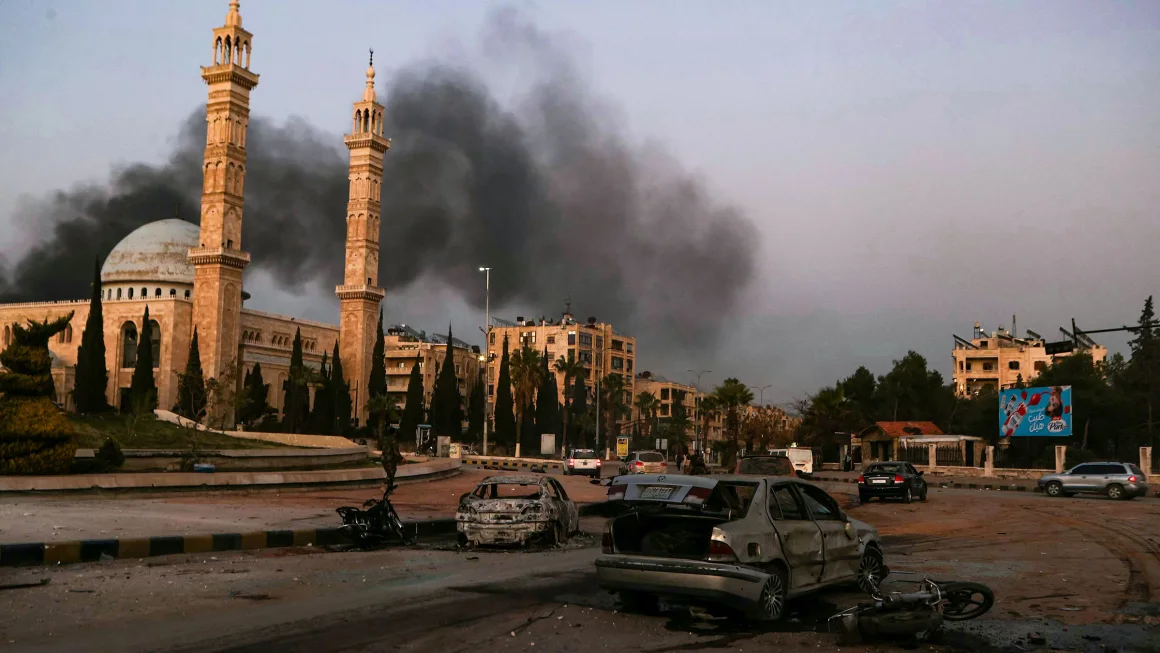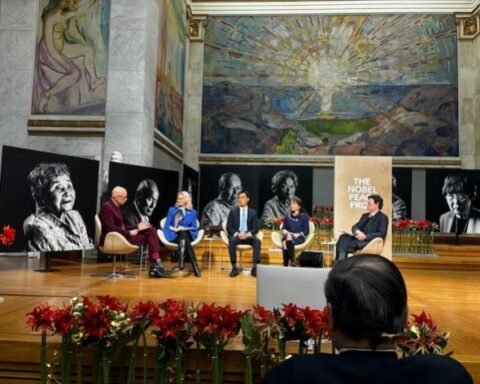Syrian and Russian jets have increased airstrikes on opposition forces in northern Syria following a sudden offensive that has resulted in the loss of control over the country’s second-largest city, Aleppo, by the Syrian regime.
The offensive, led by a newly formed rebel coalition, has resulted in significant territorial gains, including the capture of a major military base east of Aleppo and large areas across both Aleppo and Idlib provinces. The rebels have faced minimal resistance from regime forces, as both Syria’s key allies, Iran and Russia, have been preoccupied with their own conflicts.
This offensive has become the most significant challenge to President Bashar al-Assad’s government in eight years, with Russian air support previously playing a crucial role in reversing rebel advances. The coalition, known as the Military Operations Command, has seized important locations across Aleppo, including the airport, where video verified by CNN showed fighters inside the terminal. The rebels secured additional military sites in eastern Aleppo on Sunday but left some neighborhoods under Kurdish control.
The opposition’s success in Aleppo has made it increasingly difficult for the Syrian government to execute its promised counteroffensive. Syrian and Russian aircraft have launched several bombing raids targeting opposition positions in both Aleppo and Idlib provinces.
The Russian news agency TASS reported that the Syrian army had intensified strikes against “terrorist positions and supply lines,” claiming dozens were killed or wounded. A recent airstrike near Aleppo University on Sunday killed at least four people, according to geolocated social media footage. It remains unclear whether Syrian or Russian planes conducted the strike, which followed another bombing on Saturday that killed several people in western Aleppo.
The White Helmets, a Syrian volunteer group, reported at least four deaths in Idlib city on Sunday, a region now largely under rebel control.
In his first comments following the rebel advances, President Assad reaffirmed Syria’s determination to defend its “stability and territorial integrity” against what he described as “terrorists and their supporters.” He expressed confidence that, with the help of allies, Syria could defeat the opposition despite intensified attacks.
The rebel offensive has reignited the ongoing civil war, which has claimed over 300,000 lives and displaced nearly 6 million people. While the war has never officially ended, this flare-up marks the most significant escalation since 2020, when Russia and Turkey brokered a ceasefire in Idlib.
The offensive is led by Hayat Tahrir al-Sham (HTS), a former al-Qaeda affiliate now backed by Turkey and other groups previously supported by the United States. This development has created a dilemma for Western governments, as noted by Asli Aydintasbas, a Visiting Fellow at the Brookings Institution.
Aydintasbas questioned whether the West should support the rebels’ capture of Aleppo or be concerned about the city falling under Islamist rule. She argued that these events signal a shifting balance of power in Syria, with Turkey emerging as a key actor, Russia’s influence weakening, and Iran on the defensive.







